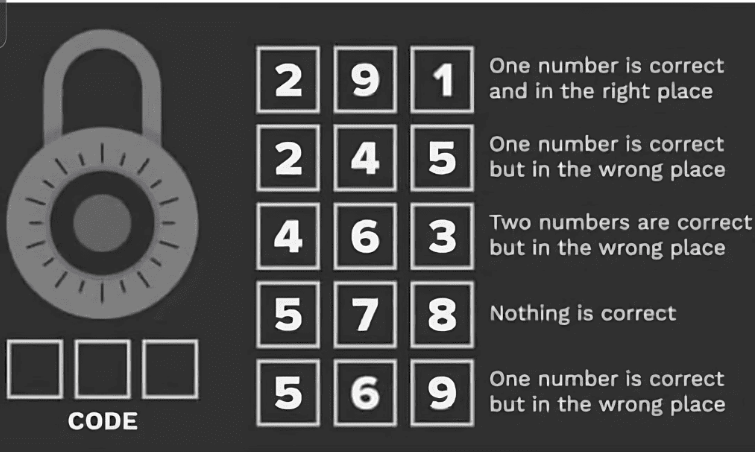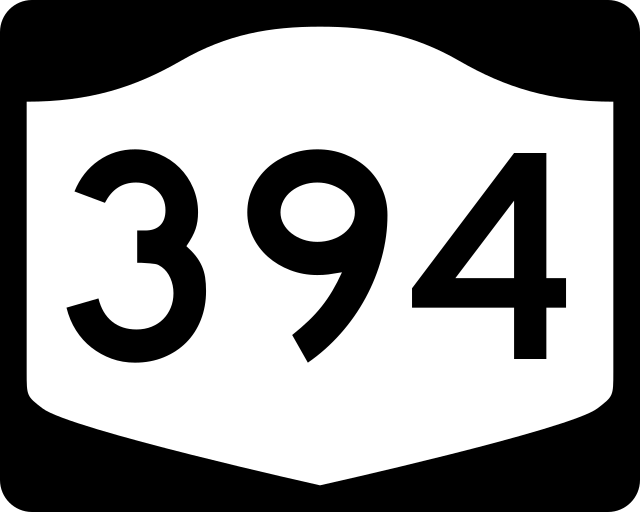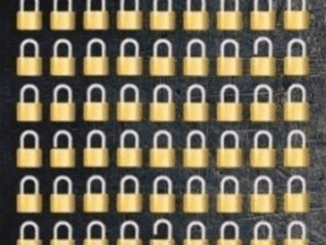Are you ready for a brain-teasing challenge? This puzzle invites you to crack a three-digit code based on a series of clues. Each clue provides valuable hints about which numbers are part of the code, whether they’re in the correct position, or how many are completely incorrect. It’s a great way to test your logical thinking and patience.

Why This Puzzle Can Be Tricky
At first glance, this puzzle might seem straightforward. But as you begin to work through the clues, it becomes clear that it’s not just about identifying the right digits—it’s also about placing them correctly. The challenge lies in how the clues interact with each other. Misinterpret one, and you’ll end up on the wrong path.
To solve this puzzle, you’ll need to rely on the process of elimination, a sharp eye for details, and some serious logical reasoning. Many solvers tend to rush and jump to conclusions too soon, leading to confusion. Let’s take a look at some common mistakes that can throw solvers off track.
Common Mistakes People Make
When attempting this puzzle, there are a few common mistakes to be aware of:
- Misinterpreting the Clues: Solvers sometimes confuse clues about whether a number is correctly placed or just present in the code. It’s crucial to distinguish between “correct and well placed” and “correct but wrongly placed.”
- Overlooking Elimination: Forgetting to eliminate digits that are confirmed incorrect can lead to incorrect assumptions about the code.
- Ignoring Clue Interactions: Solvers often treat each clue individually rather than integrating them together. The key to solving this puzzle is to consider how all the clues work collectively.
Now that we know what to watch out for, let’s break down the solution step by step.
Step-by-Step Solution to Crack the Code
Here are the clues provided in the puzzle:
- 291 – One number is correct and in the right place.
- 245 – One number is correct but in the wrong place.
- 463 – Two numbers are correct but in the wrong place.
- 578 – Nothing is correct.
- 569 – One number is correct but in the wrong place.
Let’s analyze these clues one by one and use the process of elimination to figure out the correct code.
Step 1: Analyzing Clue 4 (578)
Clue 4 states that none of the digits in 578 are part of the code. This allows us to immediately eliminate 5, 7, and 8 from consideration. This means that the correct code contains none of these digits.
Step 2: Analyzing Clue 1 (291)
Clue 1 indicates that one of the digits in 291 is correct and in the right place. Since we already know from Clue 4 that 5 is not part of the code, this clue suggests that either 2, 9, or 1 is correctly placed.
Let’s hold onto this information and move on to the next clue.
Step 3: Analyzing Clue 2 (245)
Clue 2 tells us that one number in 245 is correct but wrongly placed. We’ve already eliminated 5 from the code, so the correct digit in this clue must be either 2 or 4, but it’s in the wrong position.
Step 4: Analyzing Clue 3 (463)
Clue 3 indicates that two numbers are correct but in the wrong place. We know that 5 and 7 are not part of the code (as established by Clue 4). Therefore, 4 and 3 must be part of the code, but they’re not in the positions shown in this clue.
Step 5: Analyzing Clue 5 (569)
Clue 5 reveals that one of the digits is correct but in the wrong place. Since we know 5 is not part of the code, this clue confirms that 9 is correct but not in the second position.
Putting It All Together
Let’s summarize what we’ve gathered from each clue:
- From Clue 4, we know that the code does not include 5, 7, or 8.
- From Clue 3, we know that 4 and 3 are part of the code but need to be placed differently.
- From Clue 1, we can infer that 9 is the digit that is correctly placed in the second position.
- From Clue 5, we know that 6 is part of the code, but it’s not in the second position.
Based on these deductions, we can now determine the positions of each digit:
- 3 must be in the first position.
- 9 must be in the second position.
- 4 must be in the third position.
Therefore, the correct code is 394.
The Correct Answer: 394

After carefully analyzing each clue and integrating the information step by step, we find that the three-digit code is 394. This solution aligns perfectly with all the conditions provided by the clues.
Why This Puzzle Is a Great Brain Teaser
This three-digit lock puzzle is more than a guessing game—it’s a true test of logical reasoning. It challenges you to piece together information while keeping an eye on every detail. By focusing on the clues and using the process of elimination, you can gradually uncover the hidden code.
The puzzle helps improve problem-solving skills and encourages clear thinking under pressure. It’s a fun way to stretch your mind while working through a logical progression of steps.
Challenge Your Friends and Share Your Thoughts
Did you manage to crack the code on your own? If so, congratulations! If not, don’t worry—this puzzle is designed to be tricky. Why not share it with your friends and see if they can figure it out? Discussing different approaches and strategies can also improve your problem-solving skills.
Conclusion
This three-digit lock puzzle demonstrates the power of logical reasoning, careful analysis, and step-by-step deduction. It’s a reminder that sometimes, the key to solving complex problems is attention to detail and a methodical approach. Puzzles like this one are not only entertaining but also help sharpen your critical thinking.
Keep challenging yourself with more brain teasers and logic puzzles—over time, you’ll become a master at cracking even the toughest codes. Happy puzzle-solving!


